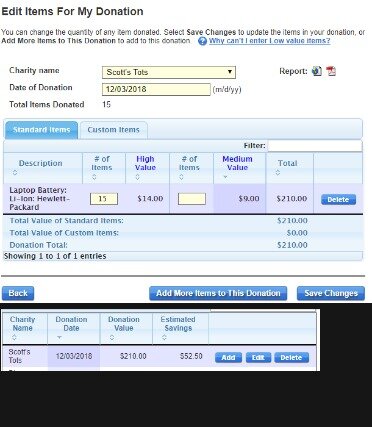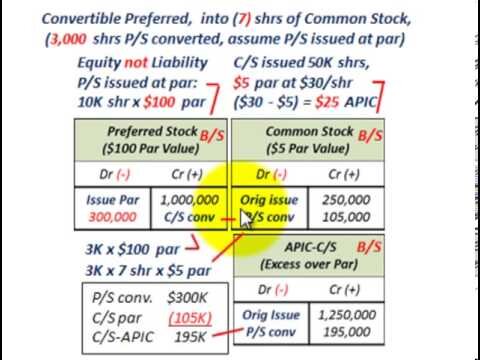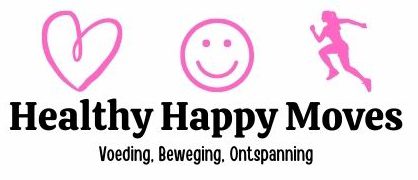Contents:


Even if you’ve never opened a spreadsheet, you might be surprised to find how well your strengths fit with what multiple streams of income do. The best part is that especially early in your career, you can change directions if you don’t like one job route. You’ll face ongoing mental and physical challenges throughout your career. If you work in public accounting, you should know that the busy season is no joke. You’ll spend at least three months of the year working late into the night, getting little sleep, and living off coffee while trying to solve tricky accounting problems.
If you struggle with math you might find it a cause for concern. However, the field of accountancy has advanced by a great degree to the level that accountants can rely on their computers and new software to take care of heavy math. Even so, it is still necessary to have a good grasp about how computer math can solve problems in accountancy.
The credits and debits in accounting are usually handled with a simple addition and subtraction. What accountants do need is to be familiar to a degree of comfort as they work with numbers, mostly in the form of percentages, fractions, and decimals. The reason the BLS reports that you don’t need complex math skills to be an accountant is because the math used to manipulate numbers in accounting is generally basic. The notion that accounting is all about math is one of the most prevalent myths about accounting. Accountants certainly do work with numbers, and they follow formulas to create financial statements.

If you are aware of the principles involved in addition, subtraction, multiplication and division, you already have enough math knowledge to be an accountant. There is no need to know integrals, differentials, or any other complicated mathematics properties and/or equations. While mathematics is an optional skill for accountants, several more important ones also exist. These skills can enhance the work that accountants put into their field. On top of that, they can also expedite their career path and help them move up the ranks quickly. Most accountants may neglect them, which can be detrimental to their work.
Top Accounting Degrees
You should be able to measure the first analyzing transactions before they are recorded. Know how to analyze , so you can become a successful accountant. Only if you plan to work at a more advanced level then you’ll need to learn advanced math. Bookkeeping involves basic accounting, but you don’t necessarily need a degree to do it. A bookkeeper tracks spending, pays bills, and keeps up with a business’s financial paperwork like invoices and reports.
- A working knowledge of arithmetic and a small amount of basic algebra will allow a student to successfully complete any introductory accounting courses, which are described below.
- Being an accountant is more than just computing financial aspects and other number-related matters.
- Most accounting courses should help accountants develop them.
- It gave me critical insight into business and a broad base of knowledge that I can bring to any job I pursue.
- So, it’s unclear which field is more complicated – accounting or computer science – it depends on the individual.
But I can personally attest that the squeeze is worthwhile for the juice. You may obtain work in good and bad economic times if you add the initials CPA to the end of your name. Additionally, if you get the hang of it, being able to examine a company’s financial performance may be quite intriguing.
What Type of Math Courses are Required in an Accounting Degree Program?
There is a defined purpose to everything that you will do in the accounting field. Formulas can be used to solve anything from the amount of fuel required for a plane or how long it will take for a human to reach the moon on a shuttle. It uses numbers and set mathematical formulas to get answers to certain questions. For example, if you want to come up with the balance sheet of a company, you will always follow the same steps and use the same mathematics formulas. In that sense, accounting is an extremely precise and clear cut subject.
As mentioned above, this software usually takes care of most of the steps involved in financial accounting. In this context, the accountant only operates and enters information into it. Therefore, financial accounts must be proficient in the use of the software. With standards knowledge, this proficiency can help them achieve significantly better results.
Mastering basic math formulas will be important, but other skills will also help you toward success. Computer skills and an ability to analyze and manage data may be equally or more important, depending on what kind of job you pursue. GAAP, or generally accepted accounting principles, are an industry-wide set of accounting rules and regulations. All companies in the United States must abide by the generally accepted accounting principles. They are used to help gauge and record economic activity, organize reports of economic information and disclose any information regarding economic changes.
Accounting students also learn
To fulfill this requirement, you might take a basic college-level course in algebra or a class in precalculus, applied calculus or business calculus. Your accounting classes themselves may test your math skills somewhat, even if they’re not technically math classes. For this reason, the field of accounting is the perfect fit for people who enjoy working with numbers but aren’t necessarily crazy about the complicated formulas of calculus, algebra and geometry. Accountants use numbers – and, by extension, math – in the service of business efforts. They may compute and prepare tax returns for individuals or handle the financial reporting needs of businesses.
If this is the case for you, consider enrolling in a course that focuses on specific aspects of the subject matter or seeking assistance from an experienced accountant. This makes accounting a challenging task, requiring meticulous attention to detail to ensure that all transactions are recorded correctly, and tax liabilities are calculated accurately. Indeed, mastering the art of accounting can be quite an arduous process – but one that is essential if businesses are to stay on track financially. Both prosperous and struggling economies require accountants. Despite this being one of the worst economic downturns in recent history, as I write, the globe is still battling COVID-19, businesses still need to be audited, and taxes still need to be filed.

Let us take a look at the differences between maths and accounting. Yes, you do need to be good at basic math to be an accountant. However, you don’t necessarily need to be good at advanced math, since you’ll mainly need to be comfortable with basic equations, math concepts, and accounting software. Apart from accounting standards, financial accounting may also concern following regulatory standards.
Do You Have to Be Good at Math to Be an Accountant?
Communication, interpersonal, analytical and computer skills are actually more important than math in accounting. While accountants do need to be competent in math, they also need to have basic computer skills, strong analytical abilities, good interpersonal skills and a talent for effective communication. Staying abreast of current and emerging technology will be very helpful. This piece of ad content was created by Rasmussen University to support its educational programs. Rasmussen University may not prepare students for all positions featured within this content.

Whether you deal in time and materials (T&M), subscription-based contracts, fixed-fee services, or a blend of these, you’re free to develop pricing and billing models tailored to your customers’ needs. Increase revenue and grow your business with insightful analytics powered by Salesforce. Use pre-built dashboards and fine-tuned data to keep your operations running lean, consistent, and predictive. Create a single source of truth for even the most complex customer relationships while boosting accuracy and efficiency with the best subscription billing software for Salesforce. OpenLearn works with other organisations by providing free courses and resources that support our mission of opening up educational opportunities to more people in more places. Anyone can learn for free on OpenLearn, but signing-up will give you access to your personal learning profile and record of achievements that you earn while you study.
What Else You Need Besides Accounting Mathematics
As an accountant, you will use the numbers to answer questions in an effort to analyze a firm’s financial standings or their budgetary constraints. After running the numbers into a software program or a spreadsheet, you will use basic math to compare revenues and expenses to determine income. The mind-numbing math that you are not so fond of is typically not involved in the profession. To earn your accounting degree, you will need to complete some required math courses, but you are not going to need to learn math at the same level as a computer engineer or a rocket scientist. The good news is that not a lot of math is needed to study accounting. A working knowledge of arithmetic and a small amount of basic algebra will allow a student to successfully complete any introductory accounting courses, which are described below.
Create an online video course, reach students across the globe, and earn money. BrieflyFinance is built based on my passion to continuously learn and find ways to simplify content for you on key topics about finance and cryptocurrencies. Accountants should be able to relay the message to their clients to meet their needs. It’s the best way for them to do their job successfully because even though you have the solution if you can’t relay it properly, it’s useless.
Accounting is about using basic formulas to accomplish a defined task. You might need to use a little arithmetic, but most of the calculations you need to do on a day-to-day basis will be done by computer programs and spreadsheets. After focusing on the humanities in high school, I wanted to gain more practical expertise as I entered adulthood. Accounting seemed like a prime career option with great earnings potential and lots of job location flexibility. But honestly, I had no idea I would actually begoodat it, much less enjoy it. As I began my studies, I found out why accounting fit strangely well into my creative personality.
While accounting is all about numerical data, you will only really be using addition and subtraction to record and analyze the data. With this being said, to major in accounting you will need to complete the required curriculum and math is a degree requirement. You might think that you need to be a numbers person to become a professional in the accounting field, and in some aspects this is true. When you think of math, you might think of mind-numbing equations, fractions, and long division, but only basic mathematical formulas are used to answer specific accounting questions.
Accountants need to be able to plan out their work and develop strategies to help clients accomplish their goals. They keep looking until they find the answer.Sometimes the first place you look doesn’t have the answer. If you’ve spent hours in the library or on the Internet tracking down facts and data for research papers, you’d probably be a good accountant. As a result, the demand for skilled accountants is higher than ever before. With so many options available, anyone looking to pursue an accounting career will find plenty of exciting opportunities.
(Both basic statistics and basic algebra are pretty important as you continue on in business subjects.) Some schools may require more advanced topics such as linear programming or calculus for accounting majors. However you will never, ever, need this kind of more advanced math in accounting. The courses are really just used as screening devices and to add status to a program. You just have to put up with them or find a different program.
NSA Celebrates International Accounting Day – National Security Agency
NSA Celebrates International Accounting Day.
Posted: Thu, 10 Nov 2022 08:00:00 GMT [source]
If you are interested in a math degree, I would suggest leaning towards an applied math degree instead of a pure math degree. The reason for this is that an applied math degree should include less proof-heavy classes and more classes that are employable in the job market. A math degree can open up many different possible avenues for yourself and can be a very good degree when combined with a more applied minor. This is because the mathematics taught in a math major is useful in a wide variety of fields but you will need to supplement it with some field-specific coursework. You can also expect to have the choice to take other advanced math classes or to take classes from related disciplines such as computer science, statistics and physics.
10 Reasons to Pursue a Master’s in Accounting Today – Keiser University
10 Reasons to Pursue a Master’s in Accounting Today.
Posted: Thu, 26 Jan 2023 08:00:00 GMT [source]
And while math is one way to work on your quantitative skills, you may find that courses in logic, economics or physics may be just as important. So don’t get too hung up on the math—it’s obviously a big part of the job, but it doesn’t mean you’ll succeed or fail based solely on your ability to crunch numbers. Like with nearly any subject, you can learn and improve with practice. Accountants are called upon to write financial analyses, memorandums for clients and reports for their managers. Thus, they need to know how to communicate their findings, recommendations and other important news in a clear and concise way.
The basic idea in accounting is that the total wealth of a company is called assets. There are two possible claims on assets, which are called liabilities and equity. Express this concept as an equation using the letters A for assets, L for liabilities and E for equity. A company has budgeted $328,000 to be used by both the marketing department and the finance department. The marketing department uses cash at the rate of $42,000 per month, which is three times the rate of the finance department. They’re good at planning.Are you the one who charted out the whole semester on the first day of class?
